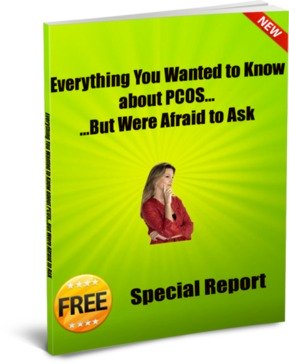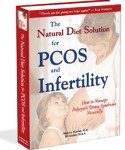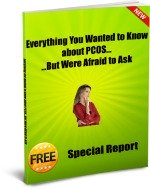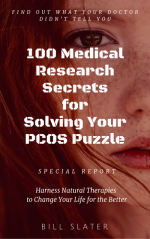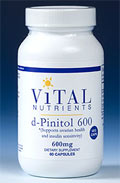PCOS Review Newsletter #147
How to Know if You're at Risk for Diabetes
How to Know if You're at Risk for Diabetes
As you may know, some women with polycystic ovary syndrome have an increased risk of developed diabetes as they become older.
Is there an easy way to assess this risk?
Nottingham Medical School in England sought to answer this question by reviewing a large number of medical studies over the past thirty years.
The researchers determined that there were four lab test biomarkers that could be used to identify women with PCOS who also have a higher risk of becoming pre-diabetic or diabetic.
Here are the lab biomarkers: fasting glucose (elevated), valine (reduced), HDL cholesterol (reduced) and alanine (reduced).
Valine and alanine are amino acids and are not commonly tested. However, both blood fasting glucose and HDL cholesterol are typically found on any common blood chemistry test.
Glucose is your blood sugar level. Your cholesterol consists of several different elements. One of those elements is HDL or "high-density" cholesterol. HDL is known as "good" cholesterol. HDL is highly desirable and indicates a lower cardiovascular disease risk.
So, the next time you get a blood test, ask your doctor if your fasting glucose is high and your HDL cholesterol is low. If so, you have a higher risk for future diabetes and need to take action today to prevent it.
Source:
Galazis N et al, Metabolomic biomarkers of impaired glucose tolerance and type 2 diabetes mellitus with a potential for risk stratification in women with polycystic ovary syndrome, Eur J Obstet Gynecol Reprod Biol. 2011 Nov 30. [Epub ahead of print]
New PCOS Symptom: Anxiety
We all know that there is a huge emotional component to polycystic ovarian syndrome, even though your doctor may not think so.
Many women report they are depressed. Some say it's all they can do to get out of bed in the morning. There's no question that depression is a major part of the "syndrome" known as PCOS.
But there is another elephant in the room: anxiety.
Nobody is talking about anxiety. Yet chronic anxiety is a serious, chronic, disabling disorder.
The University of Pennsylvania has just completed a systematic review of the medical literature on anxiety. Their research indicates that approximately 20% of PCOS women are anxious, whereas only 4% of other women are anxious. In other words, you're five times more likely to be anxious than someone else.
Anxiety is typically related to situations perceived as uncontrollable or unavoidable. For example, uncontrollable or unavoidable problems for you might be unwanted hair growth, weight gain, infertility, acne, hair loss, social interactions, or lack of job security.
Chronic anxiety is a complex mood disorder. You may have feelings of worry, nervousness, unease, dread, concern, inability to concentrate, jumpiness, anticipating the worst, irritability, or restlessness.
Physical symptoms might include muscle weakness and tension, fatigue, rapid heartbeat, nausea, chest pain, disturbed bowel function, shortness of breath, stomach aches, headaches, high blood pressure, paleness or sweating, or trembling.
If any of these problems apply to you, why not seek out some professional help? Both anxiety and depression are conditions that most people cannot control all by themselves. Find health professionals, psychologists, caring friends and family members or others to give you a hand.
Source:
Dokras A et al, Increased prevalence of anxiety symptoms in women with polycystic ovary syndrome: systematic review and meta-analysis, Fertil Steril. 2011 Nov 23. [Epub ahead of print]
PCOS Health Review
This free newsletter gives you original and immediately usable information to help you deal with PCOS.
Get the latest research, tips for improving your health, answers to questions, success stories, and more!
Your e-mail address is totally secure. We will never misuse your information.
Enter Your Email Above to Subscribe Today
and Get Your Questions Answered in this Free Special Report!
